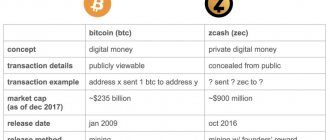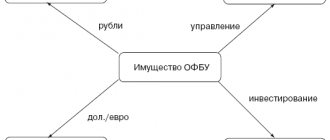The most reliable and safe investment instruments are bank deposits in large credit institutions and government bonds. However, interest rates on such risk-free investments barely compensate for the official inflation rate. A natural consequence of this situation is the desire of free capital to find more effective niches. There's not much hope for strong growth for companies that are already highly ranked stocks. Private equity funds fill this gap. Many areas of the economy have the potential to generate high returns, but these attractive opportunities are inevitably associated with serious risks.
General concept
In accordance with international terminology, direct investment refers to monetary investments in commercial companies with the aim of obtaining direct control over their business operations. The size of the enterprise's share, which allows for management and influence on decision-making, is at least 10%. Direct investments, unlike speculation in securities on stock exchanges, are not designed for short-term financial benefits, but for long-term participation in business development (time horizons often exceed 5-7 years). Organizations included in the list of private equity funds in Russia are usually inaccessible to individuals due to high minimum capital requirements.
Tips for choosing an investment fund
In principle, an investment fund is a reliable and affordable investment instrument. Their activities are customer-oriented and transparent.
But it still doesn’t hurt to pay attention to some indicators:
- How long has the investment fund been operating;
- What discounts and benefits are available for shareholders;
- What level of profitability has been observed over time;
- What is the minimum amount of funds required for investment?
- What are the conditions for exchanging or selling a share?
People with experience advise making choices using the elimination method. It is also recommended to collect as much information as possible about the funds, this will protect your funds.
Mechanism of operation
Funds are invested in companies' real assets: equipment, infrastructure, real estate, technology, as well as intellectual property and personnel training. There is noticeable interest in this form of capitalization in domestic business circles. It cannot be said that private equity funds are a phenomenon in Russia. enterprises are new and unusual. In the past, there were many examples of successful and mutually beneficial financing of Russian companies with both foreign and domestic capital. The list of private equity funds in Russia includes the following organizations:
- Bearing Vostok Capital Partners.
- Delta Private Equity Partners.
- Troika Capital Partners.
- Alfa Capital Partners.
- Mint Capital.
In most cases, foreign financial institutions become minority shareholders by purchasing relatively small stakes in domestic companies, which limits their ability to influence strategic decisions that determine the future of the business.
Corporate investment fund
A corporate investment fund is a joint-stock company for joint investment. The activities of such institutions are regulated by two documents: the charter and the regulations.
There is no founding law firm, but everything is managed by a board of directors and shareholders. The authorized capital is formed from money, shares, bonds, and real estate.
Characteristics of the corporate investment fund
As for the capital of a corporate investment fund, all rules based on the legislation of joint stock companies apply. It is best to describe it by talking about its shortcomings:
- You can only invest in shares;
- reserve funds cannot be created;
- it is impossible to provide assets to third parties as collateral;
- A loan for issuing more than 10% of capital is not possible.
Features of funds in Russia
In the Russian Federation, there are government agencies at the federal and regional levels, whose responsibilities include raising capital for the implementation of commercial projects on a national scale. Domestic financial organizations occupy a significant place in the list of private equity funds in Russia. The average investment in a developing business amounts to tens of millions of US dollars. Taking this fact into account, it is difficult to overestimate the role of funds specializing in financing large projects. Such a minimum threshold for entering the business is not available even for many banks.
Similar organizations exist in the form of closed mutual investment funds in Russia. The list includes many management companies with state participation. The process of direct business financing is regulated by federal law. Fund regulations have been revised several times over the past two decades. For example, restrictions were introduced on the participation of foreign capital in such areas of the economy as natural gas production, forestry and transport services. The financing of enterprises related to the defense industry and national security by funds registered abroad was completely prohibited. The Ministry of Economic Development is responsible for developing state policy towards investors.
Cons of IF
- High level of expenses for payment of remuneration to the manager;
- There are various payments that reduce the shareholder's profit;
- You cannot buy assets not provided for by the charter of the investment fund;
- The manager cannot sell all the shares if the market suddenly collapses;
- Risk of losing investments.
So, let's summarize. In this material, we answered questions regarding investment funds as fully as possible. For some, the information received will help preserve and increase their accumulated funds, while others will simply take note of it. But it’s worth knowing that an investment fund is far from the only investment instrument. There are others that are no less attractive to investors.
Venture funds
The name of this type of financial institution comes from the English word for risk. The concept of venture funds is similar to private equity in many aspects. Both strategies are based on the idea of capitalizing non-public commercial companies whose shares are not publicly traded on stock markets. However, there are a number of differences. Venture funds seek to invest in small businesses engaged in high-tech and knowledge-intensive developments at the earliest stages of their development. If successful, the profit can be many times greater than the money invested.
What to do to become an investor
To start investing and purchase a share in the selected fund, you need to follow a few simple steps. Visit the management office and leave your application. To register, you need to have with you: a passport and funds to buy a share. If the payment is non-cash, then you only need a passport.
If you plan to invest in a mutual fund of a bank, then you will have to visit the bank itself, or rather, any of its branches.
Experts recommend that you read all the conditions and documents on the company’s official website. You can also call there and discuss all questions with a consultant over the phone.
Risks
After the advent of the era of computers, information technology and social networks, the business world saw many examples of fantastically high returns on investments in companies that began their activities from literally zero. But the risk inherent in such an investment strategy is extremely high. According to statistics, about 80% of projects financed by venture funds end in complete failure. The secret to success is asset diversification. Funds, following the golden rule of putting their eggs in different baskets, invest their funds simultaneously in a large number of developing promising companies. The return from 20% of successful projects not only covers losses, but also brings profit.
Choosing an investment fund: How not to make a mistake
Profit and capital preservation directly depend on how correctly the investment fund is chosen. First of all, decide what is the purpose of your investment? This is the goal you should start from when choosing an investment fund. Also keep in mind that there will not be a fixed profit: it consists of several factors and may vary.
Now let’s look at each step that needs to be taken on the path to choosing a reliable investment fund.
Step 1. Decide on the amount and investment period .
This stage can be called the most important. The following principle applies: the smaller the investment amount, the narrower the range of options. The larger the amount, the more extensive the choice. As for the timing, the situation here is this: in different types of investment funds, the turnover periods are different.
If you want to invest in real estate, this is a long-term investment; if in stocks and bonds, then the funds turn over faster, but the risks are significantly higher.
Step 2. Select the appropriate type of IF .
If you have no investment experience, then it is better to choose an open mutual fund where the liquidity of the shares is high. That is, the participant can withdraw his investments from circulation.
If you are an experienced investor and know how to balance risk and return, then use other tools. For example, real estate funds, venture funds or mixed ones.
Step 3. Selecting a company to manage .
Direct deception of investors is a risky business for a management company. They are most often afraid of breaking the law and usually do not make unreasonable promises.
You can control your investments yourself if you choose an active deposit. In this case, you can deposit and withdraw funds at any time and perform any actions to achieve maximum profitability. This is available in open type IF.
If you plan to forget about the invested capital for a while, choose a closed-end or interval fund.
Step 4. Comparison of IF ratings .
The publication of ratings is openly posted on various resources. Use several and compare their data. The most authoritative pages belong to financial departments and government agencies.
Step 5. Final selection .
Having analyzed all the information received earlier, we focus on a specific fund and management company. To dispel all doubts, consult with people who already have investment experience or visit investor forums on the Internet.
If you are a beginner, then choose a stable and popular fund. But this does not mean that the majority opinion is absolutely correct.
Differences
Private equity funds are characterized by a more cautious approach to doing business. They adhere to a number of strict restrictions when choosing objects for financing. Like venture capitalists, private equity firms look for innovative businesses with high growth potential. The fundamental difference is that they invest their funds only in companies that already have proven technologies, but are in dire need of additional financing to expand their business.
Where does PEF invest?
The selection of investment objects is carried out according to various principles, including assessment methods and on the basis of insider information. Some funds are created to invest in a specific, predetermined pool of projects. The most common strategies:
- purchasing collateral assets at a reduced price;
- acquisition of a business on the verge of bankruptcy with a return to profitability;
- investing in startups before a sharp breakthrough;
- purchasing companies that are undervalued by multiples;
- merger of several businesses into one;
- entry into a niche market that is uninteresting to large investors.
For his work, the managing partner receives a remuneration, which usually consists of two parts: fixed, which is paid in any case, and variable, the size of which depends on the performance of the work. If the fund is operating at a loss, then the manager will receive money only from the “fix”.
Russian venture funds: results and prospects
The domestic market for high-risk investments in the process of its evolution has gone through several stages and experienced certain ups and downs. Legislative regulation of this form of financing was introduced in 2002. A few years later, the Ministry of Economic Development founded the Russian Venture Company with 100% state participation in the authorized capital. The main areas of her activity were nanotechnology, energy saving and environmental management.
The Russian venture investment market recovered quite quickly from the shock caused by the global financial crisis of 2008. Major investment funds and companies were not affected. The market returned to a stage of steady growth after just a couple of years. In 2013, Russia ranked fourth in Europe in terms of investment in high-tech enterprises. The situation changed dramatically for the worse after the introduction of economic sanctions against the Russian Federation. According to experts, the political crisis has caused a strong decline in the field of risky investments in the long run, and the prospects for Russian venture capital funds remain uncertain today.
Open investment companies
There are open-ended and closed-end investment funds. The open type involves the free purchase and sale of shares.
Features of open-end funds
Having the necessary resources, at any time the investor can become a participant in an open-ended investment fund. Neither the amount of capital, nor the duration of the project, nor the number of shareholders is limited.
Closed-end funds issue a limited number of investment certificates. They can be sold. A distinctive feature of open ones is the liquidity of their shares. That is, they can be sold and reacquired, which cannot be done in closed ones. However, this difference more often leads open-ended funds to bankruptcy. Such a disastrous result is influenced by economic crises or political upheavals.










